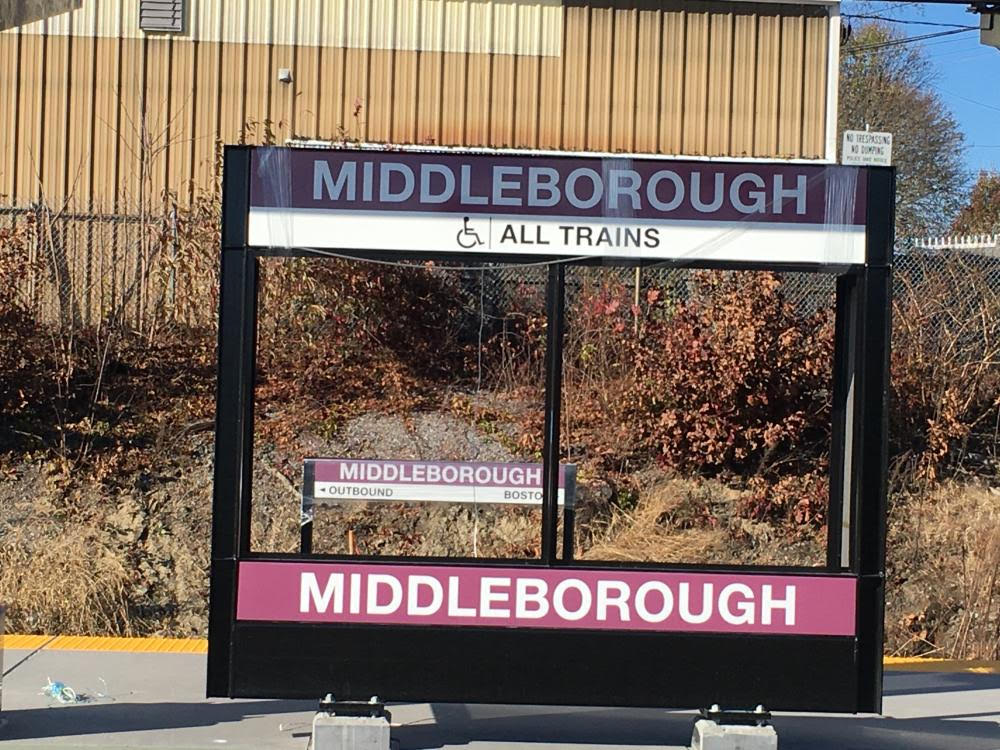Middleboro votes against compliance with state housing mandates
MIDDLEBORO — Middleboro will not comply with a state mandate that would require the town to accommodate nearly 1,500 more housing units, the select board agreed unanimously Monday, Dec. 12.
“I don’t see any good coming from what they want,’’ Planning Board chair Edward Medeiros said.
State legislation passed in January 2021 would require all cities and towns deemed as “MBTA communities,’’ including Middleboro, to have at least one zoning district “of reasonable size’’ that permits multi-family as a right.
Advocates of the plan say this would encourage more housing options within close proximity of MBTA stations to provide more access to mass transportation.
To comply with this legislation, Middleboro would have to establish at least one zoning district that would total 50 acres and have the capacity for 1,471 units, Town Planner Leeann Bradley said.
The legislation requires that multi-family housing of three or more units would be allowed “by right,’’ which means that the town would have little say about potential requirements. There would be no restrictions on age of residents or number of bedrooms and the units could be of any size, Bradley said.
Having this much more housing, in a dense, multi-family format, is not what residents want, Bradley said.
In a recent housing survey answered by about 240 residents, nearly half of respondents strongly disapproved of having block-scale housing. The majority of responses also disapproved of campus-style or mixed use/active ground floor housing.
Instead, Bradley said, the survey showed support for cottage-style homes, accessory dwelling units, such as tiny homes or attached side/rear additions, homes appropriate for downsizing, programs to support aging in place, small “truly affordable’’ single family starter homes, side-by-side duplexes and veterans housing.
“I totally agree’’ with the need for these types of housing options, Bradley said. “We can do it, and we can do it in a way that residents want.’’
If Middleboro does not comply with the state requirements, the town would be ineligible for funding from MassWorks, Housing Choice Initiative and Local Capital Projects Fund.
The town has not applied for Mass Works grants but did receive a $25,000 grant through Housing Choice in 2022 to upgrade its housing production plan, Bradley said.
Although the Department of Housing and Community Development could reduce the Housing Authority subsidy by about 11 percent if the town does not comply, Housing Authority Director Maria Medeiros has been told by the state that no funding would be reduced in Middleboro, Bradley said.
The town planner acknowledged that the legislation requires only that a town have zoning that allows the multi-family housing and is not required to build it.
But she said the issue is a “hot topic’’ in the building industry. “People are just waiting to do this,’’ she said of potential construction. “It’s going to happen.’’
Town Manager James McGrail said that any decision made that night about compliance with the legislation could always be changed going forward if circumstances changed.
Planning Board member Tracie Craig-McGee noted that the Route 28 corridor near the new MBTA station includes about seven or eight housing complexes already.
“To say we need to build almost 1,500 more units kind of seems crazy,’’ she said. “That area is [already] so developed. What are we going to do, are we going to tear down the new bank, get rid of the Walgreen’s, the Dunkin’s, the Dairy Queen? We’re going to get rid of the businesses that bring people in.’’
“If enough communities stand up and say, ‘We're not going to do this, this is not a good idea for our community,’ then maybe the Legislature will review the requirements “to make them more palatable,’’ Craig-McGee said.
“It’s bad enough that we get the T station shoved on us and we didn’t have a say,’’ she said. “Now the state’s telling us to ignore the wishes of our people and just do what they say to do because they know Middleboro better, and I don’t think that’s true.’’
Planning Board member Allin Frawley said he still has “a lot of questions’’ about the requirements.
Rejecting it “might open up a dialogue’’ with state officials, he said.












